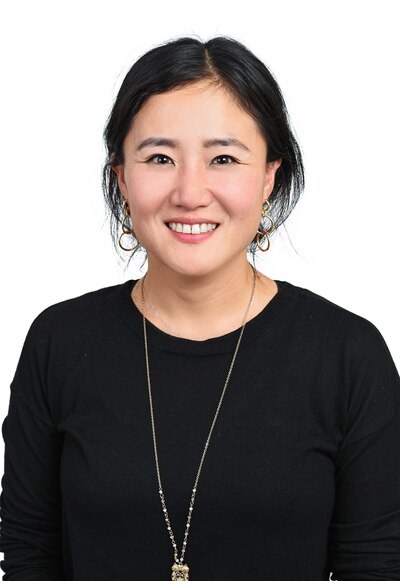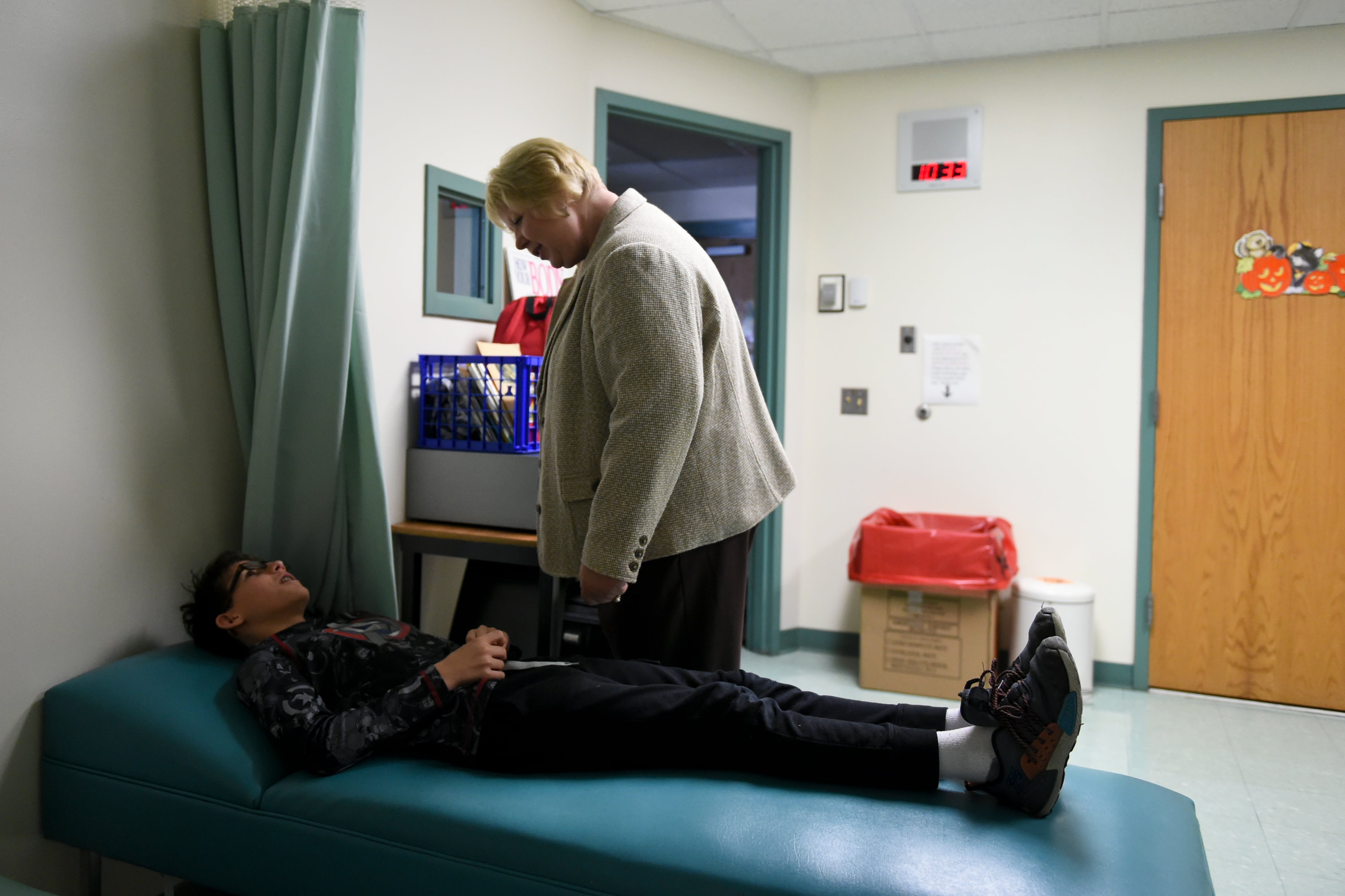Jinsun Baek, a school nurse at Center Cass School District 66, is working hard this school year to balance returning to normalcy with protecting students and staff from the coronavirus.
Baek has been a nurse for almost a decade and has worked at her small suburban school district in Downers Grove for about five years. She and a team of two part-time nurses work across three school buildings that serve about 1,000 students in kindergarten to eighth grade.
This school year, Baek was named the ‘Nurse of the Year 2022’ by the Illinois Association of School Nurses for her work in the district. She felt really honored, and surprised, to be awarded the title. “When my colleague reached out to nominate me, I said ‘Sure!’ but I didn’t expect that I would get it,” she told Chalkbeat.
Baek spoke recently with Chalkbeat Chicago about choosing school nursing, how the coronavirus pandemic has changed the perception — and reality — of her job, and what she does now to protect students and staff from COVID-19.

This interview has been lightly edited for length and clarity.
What led you to become a school nurse?
In college, I majored in biology. When I started to look into nursing, I knew that I wanted to be a public setting nurse, not a hospital nurse. During my time in college, I volunteered with a program called Peer Health Exchange where I worked as a health educator in Chicago public high schools. Volunteering made me open my eyes to the big gap between [well-resourced] schools and those that do not really have much resources.
Then I went to the University of Illinois at Chicago to obtain my degree in nursing and that program had a certification for school nursing. It was a perfect medium for me because I liked to work in a community, and I wanted to work with younger people.
What does a typical day look like for you?
As a district nurse, I’m in charge of making sure everyone with health needs has a health care plan that can be shared with their teachers or administrators to stay safe and healthy in school. So daily, it could be medication administration for diabetes or asthma, using bandages or ice packs to treat injuries, or calling 911 — that doesn’t happen too often.
When the pandemic shuttered school buildings in 2020 and it was difficult for school to reopen in 2020-21, how did that impact your job as a school nurse?
It wasn’t easy. As the only full-time health care professional in the building, I was the one who had to make sure that the district was up-to-date on the state, Centers for Disease Control and Prevention, and local health department public health guidelines. I attended a lot of webinars. I informed all the administrators on what to do. Also, I had to inform the part-time nurses about what’s going on. It was hard to keep up with the changes day to day.
During the 2020-21 school year, we were one of the few schools that reopened. We didn’t go for a full school day because we weren’t sure how to do lunch, so we would send students home for lunch and the rest of the day was virtual learning.
Last school year, students and staff across the state returned to classrooms. Were things back to normal?
It was harder last school year. While the COVID-19 rules weren’t rapidly changing and rules were loosening up, my part-time nurses and I received a lot of backlash from parents who felt like we were discriminating against their kids because they were unvaccinated. As vaccines became widely available, they became politicized. It became a little bit hard for me to push certain rules at that point.
How is this school year going as students are back in classrooms and the pandemic has settled down a bit?
Even though COVID is still here, we loosened up a lot. I think we all kinda are learning how to live with it now. It’s definitely a balance between having normalcy and making sure we are following certain guidelines or rules. Kids don’t need to wear masks in school buildings anymore, and we can bring back normal activities like movie nights.
Since the pandemic happened, do you think that people look at school nurses differently?
Before the pandemic, I feel like nobody thought of school nurses. When the pandemic hit and schools needed to be locked down, people started to rely on school nurses to disseminate state guidelines for quarantines and other COVID mitigations. While I feel like a lot more people are recognizing the importance of school nurses, there is still a lot more work to be done. While a lot of organizations recommend a school nurse in every building, a lot of school districts are not capable of adequate staffing.
What’s the best advice you’ve ever received, and how have you put it into practice?
Trust yourself as a health care professional, advocate for yourself, and voice your concerns. That helped me be seen by my administrators, and they now value my opinion as well. It was definitely helpful advice.
You have a busy job, and this is a stressful time. How do you take care of yourself when you’re not at work?
I work in the suburbs but I live in the city of Chicago. My commute is around 45 minutes and when I’m having a bad day, I blast my music on the way home and sing along. Also, I try to give myself one hour to focus on myself each day, whether that is taking a bath, watching a TV show that I like, or going to the gym.
Samantha Smylie is the state education reporter for Chalkbeat Chicago, covering school districts across the state, legislation, special education, and the state board of education. Contact Samantha at ssmylie@chalkbeat.org.






